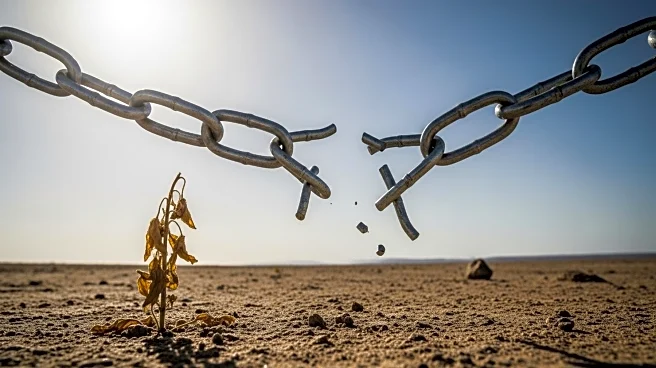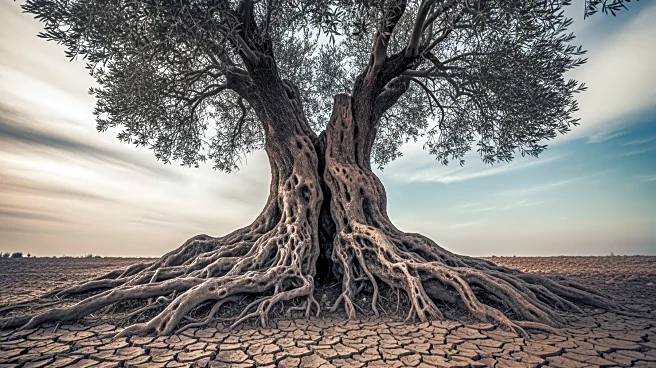What is the story about?
What's Happening?
The United Nations World Food Program (WFP) has announced a significant reduction in food assistance for Somalia, where millions are facing severe hunger due to climate change and conflict. The number of people receiving emergency food aid will drop from 1.1 million in August to 350,000 in November, as the agency grapples with critical funding shortfalls. Ross Smith, WFP's director of emergency preparedness and response, emphasized the urgent need for funding to prevent families from being left without support during a critical time. Currently, 4.6 million people in Somalia are experiencing crisis levels of hunger, with 1.8 million children projected to suffer from acute malnutrition this year. The situation is exacerbated by ongoing conflict and insecurity, including the presence of the militant group al-Shabab.
Why It's Important?
The reduction in food aid by the WFP highlights the dire humanitarian situation in Somalia, which is compounded by climate change and political instability. The cut in assistance could lead to increased suffering and mortality among vulnerable populations, particularly children. This development underscores the broader challenges faced by international aid organizations in securing funding and resources to address global crises. The U.S. foreign aid cuts have further strained the ability of humanitarian agencies to respond effectively, potentially leading to a worsening of the crisis. The need for $98 million to sustain operations through the lean season until March 2026 is critical to prevent further deterioration of conditions in Somalia.
What's Next?
The WFP's announcement may prompt international calls for increased funding and support to address the humanitarian crisis in Somalia. Humanitarian agencies and governments may need to reassess their strategies and commitments to ensure adequate resources are allocated to regions facing severe hunger and malnutrition. The situation could also lead to increased advocacy efforts to highlight the impact of climate change and conflict on vulnerable populations, potentially influencing policy decisions and aid distribution. The response from major stakeholders, including donor countries and international organizations, will be crucial in determining the future of humanitarian efforts in Somalia.
Beyond the Headlines
The crisis in Somalia reflects broader global challenges related to climate change, conflict, and resource allocation. The reduction in aid may have long-term implications for the country's stability and development, as well as for regional security. The situation raises ethical questions about the responsibility of the international community to support nations facing existential threats due to factors beyond their control. It also highlights the need for sustainable solutions to address the root causes of hunger and poverty, including investment in climate resilience and conflict resolution.
















